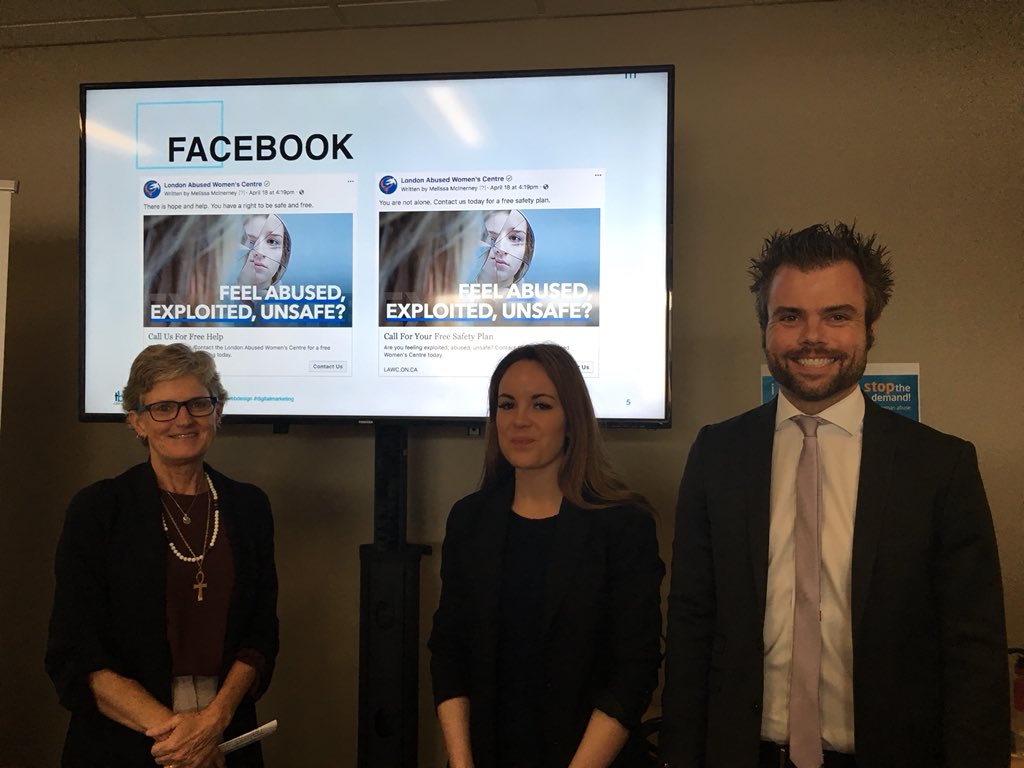A new digital advertising campaign is using Google and Facebook to teach people in London and the surrounding area about human trafficking.

The London Abused Women’s Centre teamed up with Youth Opportunities Unlimited (YOU) and the Salvation Army Correctional and Justice Services, and London-based marketing agency tbk Creative to formally announce The Phoenix Campaign on Friday morning. It is being hailed as one of the first public awareness campaigns about trafficking, partly focused on educating men in the area.
“What we know is that a lot of men don’t realize that sex buying is illegal, and they also don’t understand what sexual services are,” said Megan Walker, executive director of Women’s Centre.
That’s why the campaign is targeting men between ages of 18 and 65 years old, who are on Facebook within a 20-mile radius of London, with advertising about the consequences of buying sex. Through AdWords, similar messaging will appear at the top of Google results, when a user searches for websites like Backpage, which is known for allowing the advertising of sexual services, or Seeking Arrangement, a “dating website” for sugar daddies and babies.
Kylie McConnell, director of accounts at tbk Creative, says the campaign launched on April 24, and the Facebook ads targeting men have already generated 82,000 impressions. Between Google and Facebook, McConnell says there have been more than 2,000 clicks through to the LAWC website page about buying sexual services.
A PDF about Canada’s prostitution legislation, Bill C-36, has even been downloaded from the page five times, noted McConnell.
The messaging directed at girls and women, which communicates how they can get help leaving abusive, unsafe, or exploitative relationships, has generated few impressions on Facebook. McConnell says the advertising has been seen by 47,000 Facebook users, but that the age demographic is much smaller, targeting girls and women between 18 and 25 years old in the city and the surrounding area.
The same messaging, tailored for Google, will appear if someone searches for a topic like “abusive relationships” or “help hotline.”
“Our mandate as an organization is to provide women with immediate access to service, and to make sure they receive a safety plan and know that there is hope and there is help, and those are the consistent messages of this campaign.”
Three women have contacted the women’s shelter as a result of the advertisements so far.
The campaign is four months long, and will carry on until the end of August.







Comments